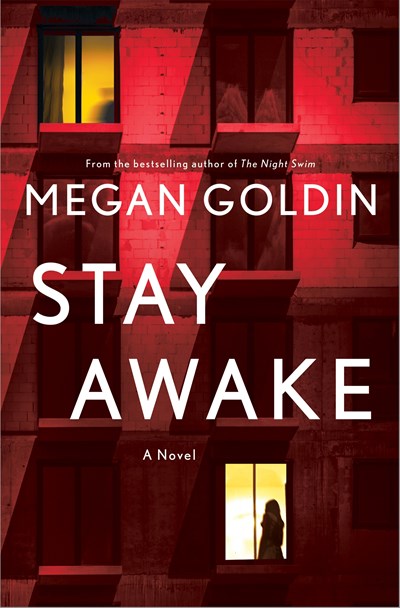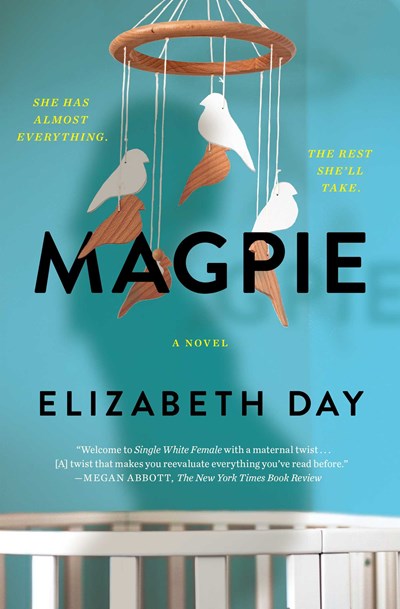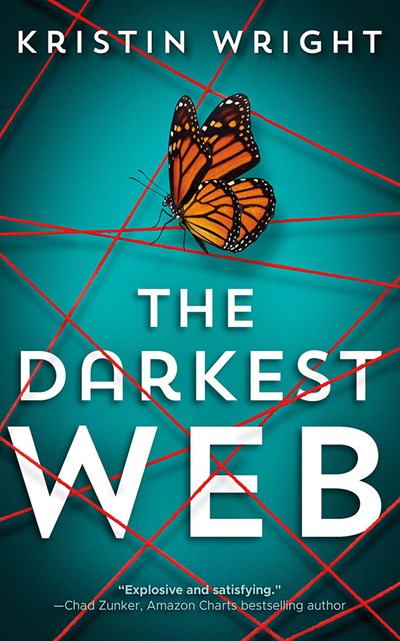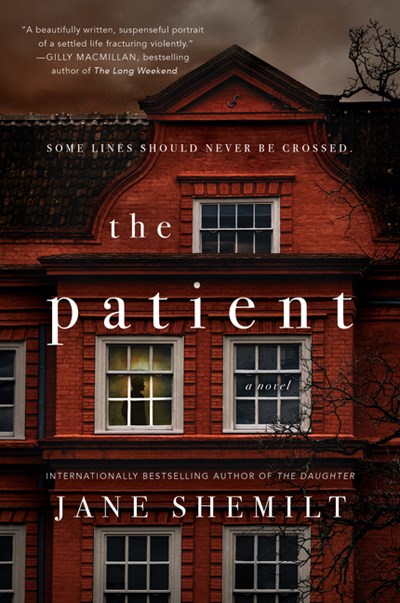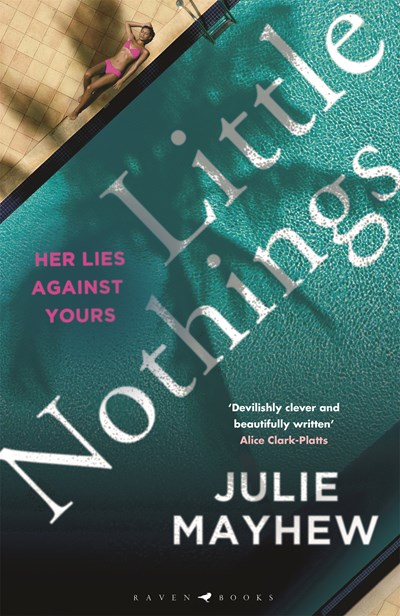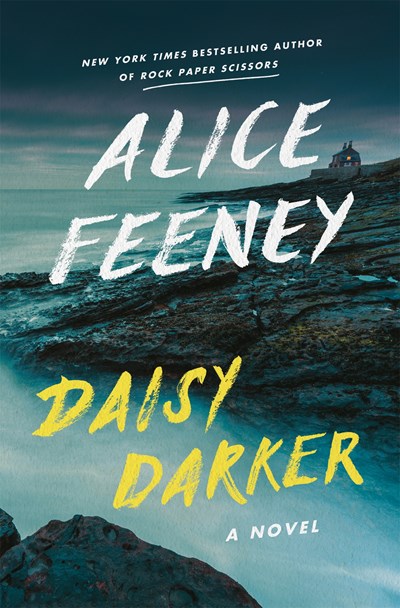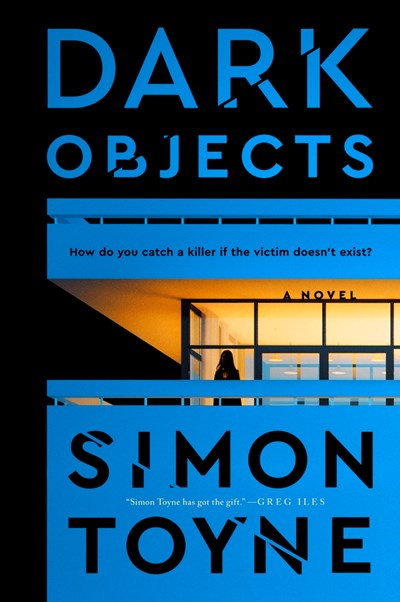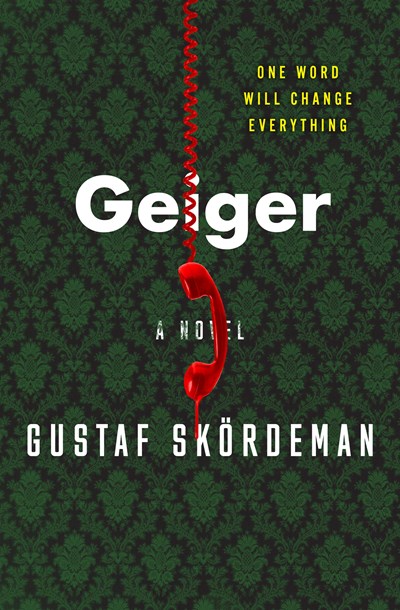Goldin’s (The Night Swim) startling work immerses readers in the disorientation and vulnerability that is amnesia. Every time Liv Reese wakes up, she has no memory of the previous two years. Notes that she writes on her hands and Post-its on her doors and walls guide her to contact friends who can help and to find the precious journal that details each vanished day. She repeatedly learns afresh that she was injured two years ago, leading to her memory problems, while other terrible events from that time are slowly revealed. In the present, the awakening that opens the book sees her running from an apartment with a bloody knife. Did she hurt someone? Whose apartment was that? Why does it seem like a different season? Then the point of view switches to a dead body being found, and a chase is on that sees us switching back and forth in time from before the injury, when Liv was a nightlife-loving young New Yorker who worked at a high-status magazine, to a few days before the bloody-knife incident, when the past catches up to her with a vengeance. The displacement caused to Liv by her condition is visited on readers to fast-paced and thought-provoking effect here; the story is gripping too, all adding up to a top-shelf psychological thriller for fans of Alice LaPlante.
Thrillers
hen London couple Marisa and Jake rent their spare room to Kate, the three get along fine at first, even if things are a little awkward. The extra money is certainly helpful when Marisa becomes pregnant with a longed-for baby. But soon things turn weird and then sinister as unpregnant Kate shows up at Marisa’s prenatal yoga class and, in other ways, seems to be pushing her way into their lives far too much. Marisa fears that the interloper might even be having an affair with Jake. Then we switch to Kate’s point of view, to encounter the same events, even the same conversations, from a very different perspective. Day’s (The Party) story (while not recommended to those facing the pain of infertility, a major plot point) is fascinating because of the individual stories and the novel’s upside-down turn halfway through. The portrayal of Jake’s snooty mom, Annabelle, a wicked-witch-type mother-in-law, is the icing on the strange cake. Devotees of unreliable-narrator tales, snap this one up!
A fast-paced, perplexing mystery plus the main suspect’s heavy past combine to make Wright’s second in the series (after The Darkest Flower, 2021) one to remember. Throughout the book, there are two stories. In the public one, beautiful—so beautiful it’s problematic—workaholic lawyer Jane Knudsen is accused of murdering her tyrant boss and is defended by her former college roommate, lawyer Allison Barton. Then there’s the private tale, in which it’s slowly revealed why Jane never lets anyone get close and finds taking the fall for a murder preferable to telling the truth. Child sexual abuse is a prominent theme here, and Wright manages to keep those crimes off-screen while their emotional and practical repercussions are sensitively explored. In the process, readers are given two relationships to root for: Jane’s fledgling one with a coworker she dares to fall for, and Allison’s as a single mom who’s trying to balance romance with a promising man with raising a child who wants her mother all to herself. There’s a lot to ponder here, and before you know it, a twist shatters the story. Try this after Wanda M. Morris’ All Her Little Secrets, which also features a woman lawyer accused of murder.
It’s 1939 and a vicious serial killer is pursuing his bloody wont in Berlin’s trains. Assigned to these cases, which his superiors in the Kriminalpolizei, or Kripo, think are unrelated accidents, is Inspector Horst Schenke, a former racecar driver who’s embarrassed that injuries related to his old career have kept him from the front. He’s not one to rock the boat but quietly resists the ridiculous bureaucracy, lawlessness, and brutality of “the party,” even as his thuggish superiors hint and then state outright that he won’t get ahead without a Nazi badge. Glamorous dates (or as glamorous as nightly blackouts, rationing, and lack of fuel allow) with his resistance-leaning girlfriend keep the moral quandaries from eating Schenke up too much, but when the killer goes after a Jewish woman, Ruth Frankel, a surviving witness whom the inspector feels compelled to save, the pressure is on. Nazi higher-ups feel the woman can be used as bait and force a bootlicking rule-follower to shadow Schenke’s every move so he’ll comply. At the same time, the killer continues his spree while attempting to cover his tracks, an effort that puts Ruth and her protector in grave danger. The close calls and chases in this novel are truly scary, and the unusual perspective ramps up the intrigue. Fans of serial-killer mysteries who are looking for something a little different are the audience for this one.
Michelle Miller finally got herself out of Lorida, Florida on a swimming scholarship and never looked back. Now, 15 years later, she’s returning to see her dying mother, and, unavoidably, confront her painful past. Back then, she was poor—she shared a bedroom in a trailer with her brother—and reclusive; she didn’t come alive until she met Sissy, a rich and rambunctious classmate. They were soon joined by Morrison, a queer punk rock kid, and their dysfunctional little family was complete. From shoplifting in department stores to hanging out in gay bars, Sissy offers fun in technicolor, but it comes at a price: possessiveness, dramatic mood swings, and ultimately violence. But it isn’t until she’s at college in Georgia that Michelle begins to understand how much of her youth Sissy destroyed, and how little of it she’ll ever get back. The surprising ending—with some extraordinary revelations—is downright healing. And while there is criminal behavior, it’s on the sidelines of the story, never at the center. A wonderful tale about the power of friendship to transcend evil that young adults should also appreciate.
A richly imagined novel in which the elements of suspense grow organically from the characters’ lives. Fifty-something Rachel, a doctor, has a tidy, if dull, life with her husband of many years, a medical practice she enjoys, and a beautiful home in the cathedral town of Salisbury. Her one regret is adult daughter Lizzie, who is totally over her mother (“Take a break Mum, stop texting me!”). When French painter Luc walks into Rachel’s office—he and his family are new to town and he’s experiencing psychological issues—the attraction is immediate, although left unfulfilled. Meanwhile, Rachel suspects she is being followed, her husband is acting weirdly, and Lizzie is keeping something from her. Eventually she and Luc reunite and—professional ethics be damned!—initiate their affair while in the south of France. Affairs can peter out, some manage to live on in secrecy, while others are exposed, creating scandal. But Rachel and Luc’s relationship razes their world—leading to murder, incarceration, and abandonment. Way to throw away those middle-class inhibitions! Readers will be seduced by Shemilt’s ability to gradually build a story, leading us from the mundane to the miraculous.
Liv, a bored stay-at-home mother, is leading a double life. She’s been friendless for years, so when she meets other women at an overly earnest children’s music class who also think the event is ridiculous, she’s all in. Liv and her husband, Pete, are parents to a little girl, but soon Liv spends most of her spare time with Beth and Binnie, and then with a new addition to the group, Ange. The friends’ partners and children often take part too but are very much beside the point to the women, who seem almost to be reliving their teen years. The suffocating peer-pressured friendship is made worse when Ange joins, as she’s fond of backstabbing comments that are posed as jokes, and Liv walks on eggshells, fearing she’ll be rejected from her only friendship. Soon Liv and Pete, who are struggling financially, get into massive debt keeping up with expensive dinners and designer outfits that their friends insist they deserve. The pinnacle is a three-week trip to Corfu that is set up at first as a locked-room mystery, but then another person enters the drama, leading to a tantrum-and-booze loaded tragedy. This feels like a movie that you watch from between your fingers as everything goes dreadfully wrong, fast. Try if you enjoy girls’ trip stories.
An homage to Agatha Christie’s And Then There Were None that is both wryly humorous and deadly serious. The setting: a Victorian gothic house, named Seaglass, located on a tiny island off the Cornwall coast, accessible only during low tide. The cast: matriarch Nana, her son and ex-daughter-in-law, three adult nieces, a grandniece, and a family friend. The occasion: Nana’s 80th birthday, predicated to be her last. As the sun goes down, the tide rushes in, dinner is served, and then it’s time for Nana to read her will. Our narrator, and very much the center of the book, is Daisy, Nana’s youngest and favorite niece, who was born, in Daisy’s word, “broken,” with a heart condition she could die from at any moment. Nana—a wonder of a character—is a famous children’s book author, and Seaglass overflows with her designs and eerie, Edward Gorey-esque poems. The novel shifts between the family’s painful past and the nerve-wracking present, and as the night grows longer, and the revelations unfold, the carnage increases. The ending manages to shock, and while some readers may feel cheated by the turn of events, others will enjoy having to rethink the whole book. This book isn’t twisty, it’s demonic.
Readers will wish that this standalone were the first in a series (though Toyne has written series that readers can fall back on, such as the Sanctus Trilogy). The book starts with a single killing, a seeming locked-room affair, as a woman is discovered murdered in her fortress-like London home that requires fingerprint and facial-recognition access. Her husband is nowhere to be found and is the obvious suspect, but adding perhaps a red herring, perhaps a path to follow, several objects are placed around the body. One of them is a forensic-science manual, How to Process a Murder, which is by the police chief’s estranged daughter, Laughton Rees. Following the grisly opening, the tale continues with chapters presenting perspectives from Laughton, who as a child survived an attack by a serial killer and has never been the same; nervous, kind-hearted Pakistani-Irish cop Tannehill Khan, who soon finds that the crime stats he dreaded presenting to the press are the least of his problems; and a sleazy tabloid journalist who revels in the three Ms: murder, mystery, and money. The wish for a series mainly comes from observing the Tannehill and Laughton characters, who are both burdened with far too much and believe in themselves far too little. The taut and terrifying ending doesn’t hurt either.
Talk about jumping right into the thick of the story. As Skördeman’s debut opens, a wife says goodbye to her visiting daughters and grandchildren, picks up the phone, and, hearing just the word Geiger, shoots her husband in the head. We have no idea why she would do this nor where she’s headed after immediately going on the run, and what unfolds is more bizarre than we could have imagined. It’s also much weirder than the Swedish public ever thought could happen to the victim, a beloved TV presenter and jolly father figure known as Uncle Stellan. Espionage involving Sweden’s relationship with East Germany during the Cold War and after, and the relationship between Uncle Stellan’s spoiled, mean daughters and their childhood friend and bullying target Sara—now a police officer who elbows her way into the investigation—are highlights of this tale, as are the frequent head-spinning twists. Potential readers should note that child sexual abuse is a major plotline here. For fans of Elizabeth Elo’s Finding Katarina M., which also has echoes of a communist regime.

